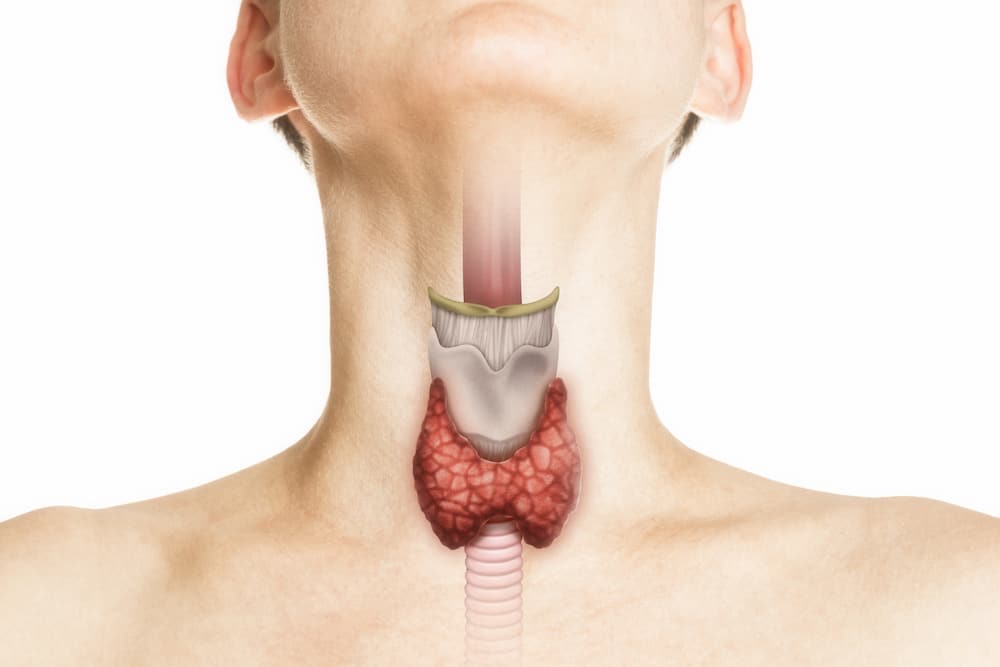TREATMENT
Thyroid Surgery
TREATMENT
Thyroid Surgery
Thyroid Nodules and Thyroid Surgery
At Century ENT, we specialize in providing exceptional care for thyroid health.
The thyroid is a butterfly-shaped gland located in the front of the neck, just below the Adam’s apple. It produces hormones that play a crucial role in regulating various bodily functions, including metabolism, energy production, and growth. Sometimes, the thyroid gland may develop abnormal growths called nodules. Most thyroid nodules are benign (non-cancerous), but in some cases, they can be malignant (cancerous).

There are multiple ways to stratify your risk for cancer. It starts with an ultrasound. Depending on size and ultrasound characteristics, a needle biopsy may be recommended. This is usually performed under ultrasound guidance.
The cells are looked at under the microscope to stratify the risk of cancer. Sometimes these cells are sent to an outside lab to stratify the risk of cancer at the DNA level. The most common tests are called ThyraMIR and Affirma.
Indications for Thyroid Surgery
Our skilled physicians may recommend thyroid surgery for various indications, including:
- Thyroid Nodules with Suspicious Characteristics: Determined by ultrasound and fine needle aspiration.
- Enlarged Thyroid (Goiter): In cases where the thyroid gland becomes significantly enlarged, causing symptoms like difficulty swallowing or breathing problems, surgery may be considered.
- Thyroid Cancer: For thyroid cancer, surgical removal remains the primary treatment. The extent of surgery depends on the type, stage, and size of the cancer.
- Hyperthyroidism: Poorly controlled thyroid levels may necessitate the removal of the gland, with thyroid hormone control achieved through medication.
Risks and Considerations
While thyroid surgery is generally considered safe and well-tolerated, it’s important to be aware of potential risks and complications, which may include:
Vocal Cord Nerve Injury
There are two nerves that run along either side of the windpipe. Each nerve controls one vocal cord. It is possible to either temporarily or permanently injury one of the nerves which may cause temporary or permanent hoarseness. If both nerves are injured, it may cause difficulty breathing and swallowing. This may require a tracheostomy tube, which is a plastic tube inserted in through the neck to help with breathing. It is rare to experience such an injury.
Low Calcium
As discussed above, low calcium must be managed with oral supplements. This is critical to avoid life-threatening complications of low calcium.
Scar
The smallest possible incision is used and a plastic surgery technique for closing the wound is used to prevent a noticeable scar, but it is impossible to make a skin incision without causing a small scar.
Bleeding
This is unusual for thyroid surgery but if it happens, the skin may turn a red or blue color, the neck will swell, and it will be painful. If this occurs, notify your physician right away.
Infection
Very low risk. Antibiotics are not routinely prescribed post-operatively.
Need for Reoperation
Sometimes small pieces of thyroid gland are left behind and require an additional surgery to remove. Sometimes a diagnosis of thyroid cancer is made after surgery, which may require additional surgery to remove lymph nodes in the neck.
Surgical Experience
- Performed under general anesthesia.
- An incision on the neck is required, which generally heals well, but does leave a scar. This incision will be made as small as possible.
- The procedure usually takes from 1 1/2 to 3 hours.
- On rare instances, a drain is left in the neck after surgery to allow leakage of tissue fluid out of the wound, and to prevent infection. This can be taken out at the office within 2-5 days post-operatively. This will be clarified in the hospital post-operative instructions.
- Your calcium level will be monitored at least overnight with several blood draws.
Conclusion
Thyroid surgery, or thyroidectomy, is a common procedure performed for various indications, including suspicious thyroid nodules, goiter, thyroid cancer, and severe hyperthyroidism. While it carries some risks, the surgery is generally safe and well-tolerated when performed by an experienced surgeon. Postoperative care and follow-up are essential to ensure a smooth recovery and optimal management of any potential complications. Patients who undergo thyroid surgery often require lifelong thyroid hormone replacement therapy to maintain hormone balance and overall health.
